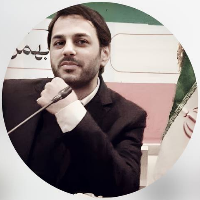The Situation of NATO in Terms of Internal Organization after the Ukraine War
Russia's aggressive action against Ukraine was carried out with the aim of restraining this country from joining NATO; However, this action of Russia was raised along with criticisms of NATO for not preventing the occurrence of this war, to the extent that this war is considered a turning point in NATO's organizational changes. Therefore, the main question of this research is, what changes will Russia's attack on Ukraine bring about in NATO's internal organization? The findings show that there are differences of opinion about strengthening or weakening NATO after the Ukraine war, so that on the one hand, the argument in favor of strengthening NATO is that NATO, due to the decision of countries to increase European defense spending, the declaration of the desire of countries such as Sweden and Finland to join NATO, the further strengthening of American cooperation with NATO and the expectation of strengthening British relations with NATO will be strengthened; While the opposite point of view believes that the weak effectiveness of NATO's deterrence, the Europeans' dissatisfaction with American unilateralism, the existence of NATO's economic infrastructure problems, and the difference between European members in the concept of European strategic independence will lead to the weakening of this military alliance from decision to action. However, in a general assessment, it is expected that with the prolongation of the Russian war against Ukraine and the impact of Europe's need for Russian energy, along with Europe's inability to restrain Russia, the second view will prevail.
Europe , Ukraine crisis , NATO , Russia , security
-
Media strategies of disseminating Salafi discourse: A study of three generations of Jihadi-Takfiri Salafi groups
Alireza Samiee Esfahani *, Ehsan Jafari, Mahin Siamansouri
Media and Culture Journal, -
Russia's smart power policy (soft and hard) in Syria, with an emphasis on confronting Turkey 2011-2023
, Habiballah Abol Hasan Shirazi *
Soft Power,


